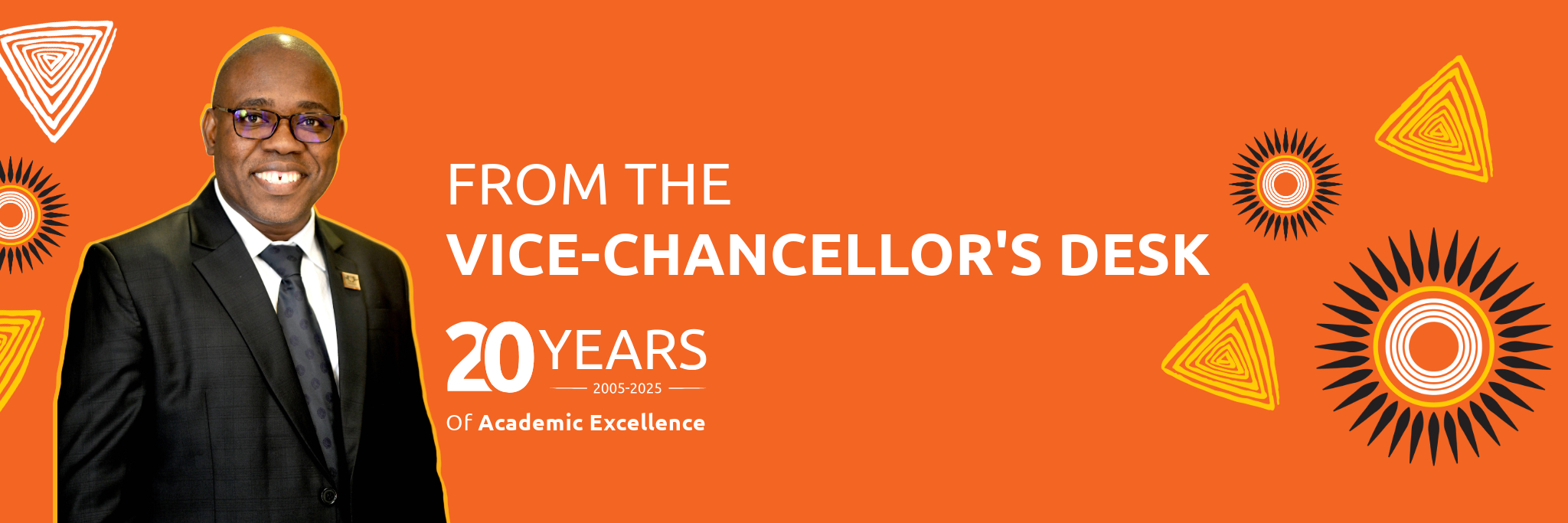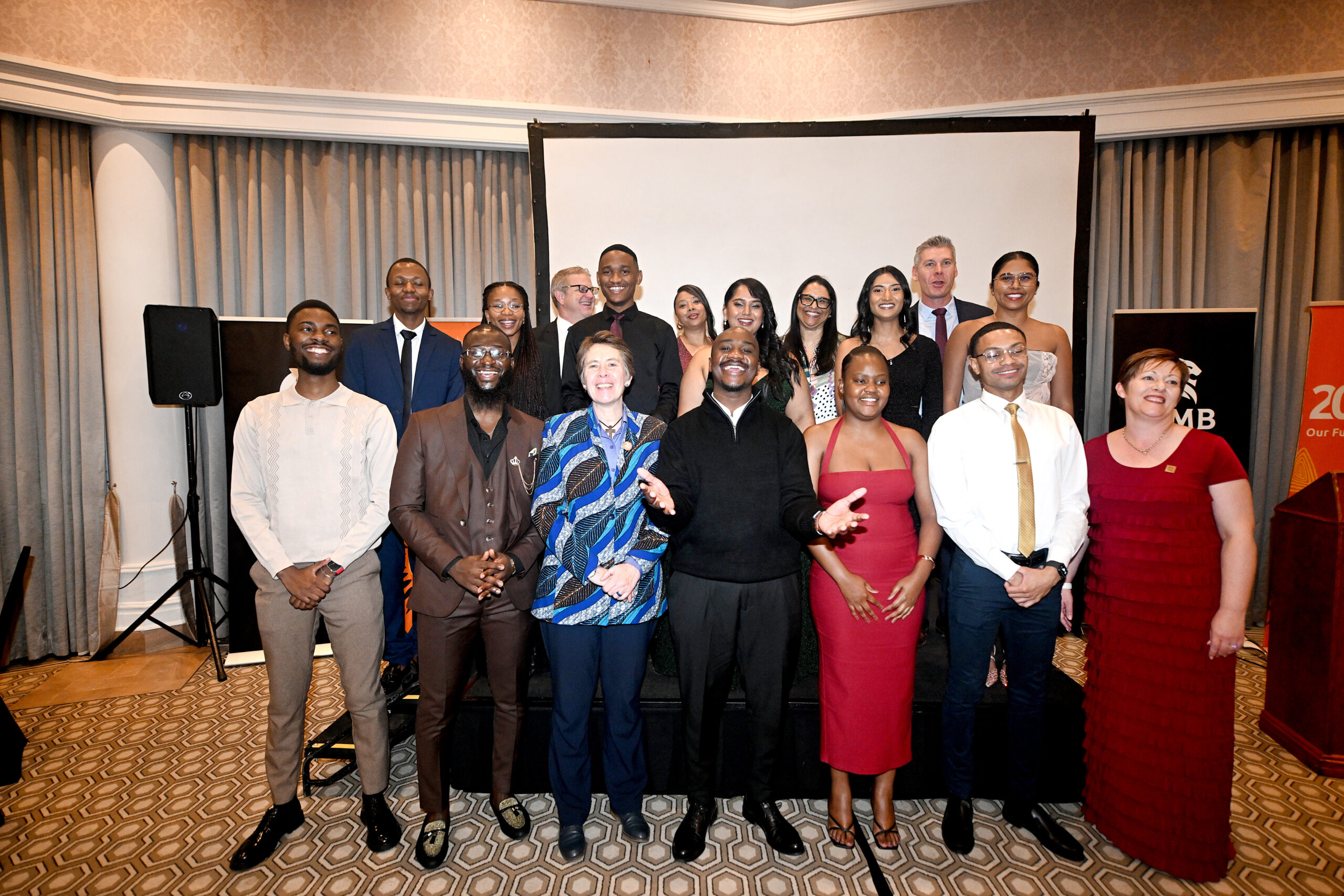
Dear UJ community,
Most recently, I participated in the Kgalema Motlanthe Foundation’s annual Drakensberg Inclusive Growth Forum. This platform continues to convene some of the most distinguished voices shaping South Africa’s developmental path and position in the global economy.
This year’s theme, “Defining the National Interest: Our Greatest Priorities Including Geopolitics, Trade and Inclusive Growth,” brought together leaders from academia, business, government, and international institutions.
I had the honour of contributing to the session on Approaches to Capacitation and Employability, where I delivered an address titled “Migration as a Critical Element of Higher Education in South Africa.” I emphasised that universities must remain open and collaborative spaces that transcend borders to foster innovation, knowledge creation, and shared progress.
I was proud to see UJ meaningfully represented in shaping these national discussions, reaffirming our commitment to diversity, knowledge exchange, and collaboration for a more inclusive and globally competitive South Africa.
Marking milestones with launches of the Rescue Centre and AI and the Law Institute

Today, UJ celebrates two historic milestones!
We will officially launch Africa’s first state-of-the-art Rescue Simulation Centre, a 3,000m², four-storey facility at our Doornfontein Campus, designed for high-fidelity training for emergency responders. Developed under the Department of Emergency Medical Care in the Faculty of Health Sciences, the Centre features a five-metre-deep survival pool, helicopter hoist training, and an urban search and rescue zone. It will strengthen disaster preparedness, research, and inter-agency collaboration across Africa.
Congratulations to Prof Annie Temane, Executive Dean of the Faculty of Health Sciences; Prof Craig Vincent-Lambert, Vice Dean: Teaching and Learning; Prof Chris Stein and Mr Connor Hartnady, staff members from Emergency Medical Care; and the entire team for their vision and leadership. The Rescue Centre stands as a continental asset, uniting academia, government, and industry to build resilience and save lives.
Later today, our Faculty of Law will launch the AI and the Law Institute (the Institute), a project close to my heart. I have long been passionate about the intersection of artificial intelligence and the law, having written extensively on the subject across various platforms. Recently, I had the privilege of collaborating with Prof Tshilidzi Marwala, Rector of the United Nations University and Under-Secretary-General of the United Nations, on a book titled Artificial Intelligence and the Law (Palgrave Macmillan, 2024), and we are also finalising another forthcoming publication, Artificial Intelligence and Employment Law (Springer).
The establishment of the Institute marks another pivotal moment for UJ, as it seeks to advance responsible and ethical innovation where technology, justice, and human dignity converge.
Congratulations to Prof Charles Maimela, Executive Dean of the Faculty of Law, and the team for ensuring UJ remains at the forefront of legal and technological innovation in higher education.
Celebrating staff and student achievements
No edition of this newsletter would be complete without celebrating the accomplishments of our staff and students, whose excellence continues to elevate our University’s reputation both locally and globally.
I am delighted that six exceptional UJ women were named among the Mail & Guardian’s 2025 Power of Women Honourees, a recognition of 100 women transforming South Africa through leadership, innovation, and societal impact.
Congratulations to Dr Khanya Mthethwa, Prof Kulsum Kondiah, Prof Heidi Abrahamse, Ms Natasha Rene Naidoo, Prof Danielle Nel-Sanders, and Prof Stella Bvuma. You embody the spirit of excellence, innovation, and compassion that defines UJ. Click here to read more.
On the student front, the UJenius Club Gala Dinner celebrated our top 50 students for 2024 and 2025. Established in 2011, the initiative recognises exceptional academic performance and leadership. Facilitated by the Division of Academic Development and Support (ADS), the event honoured students who exemplify UJ’s values of excellence, integrity, and innovation.

This week also saw the graduation of participants from the UJ Young Leaders Development Programme (UJYLDP), facilitated by the Johannesburg Business School. This six-month programme equips young leaders with the skills and mindset to drive societal responsibility and change diverse contexts.
Adding to this spirit of achievement, our Women’s Under-20 Football Team triumphed at the Engen Champ of Champs Tournament, defeating Durban Ladies 1–0 in the final. This win follows their earlier victory in the Engen Knockout Challenge, marking an outstanding double for the team. Click here to read more.
Congratulations to all our honourees, achievers and champions!
I would also like to take this opportunity to join all South Africans in congratulating our national soccer team, Bafana Bafana, on qualifying for the 2026 FIFA World Cup after their resounding 3–0 victory over Rwanda. Well done, Bafana Bafana!
Global rankings
Speaking of achievements, I am pleased to share that UJ has once again been recognised in a global ranking, moving up in the 351-400 band in the 2026 Times Higher Education (THE) World University Rankings. This places UJ among South Africa’s Top 4 universities and within the Top 400 worldwide. This recognition reflects excellence across teaching, research, international outlook, and industry impact.
Building on past successes, UJ ranked #23 globally, #1 in South Africa, and #1 in Africa in the 2025 THE Impact Rankings, as well as #1 in Sub-Saharan Africa in the 2024 THE Sub-Saharan Africa University Rankings.
These achievements are a testament to the collective dedication of our staff, researchers, and students to academic distinction and societal relevance. I thank you.
Remembering those we have lost
Lastly, on a sombre note, we gathered for our Annual Memorial Service this week, honouring the staff and students we lost between 1 September 2024 and 31 August 2025. It was a time for reflection and unity. A reminder of the profound ways in which each individual shaped our University through their compassion, contribution, and commitment.
As candles were lit in remembrance, we were reminded that their journeys with us had ended. However, their light continues to guide and inspire our path forward. May their souls rest in peace
Ke a leboha, ngiyabonga, thank you, baie dankie!
Professor Letlhokwa Mpedi
Vice-Chancellor and Principal



